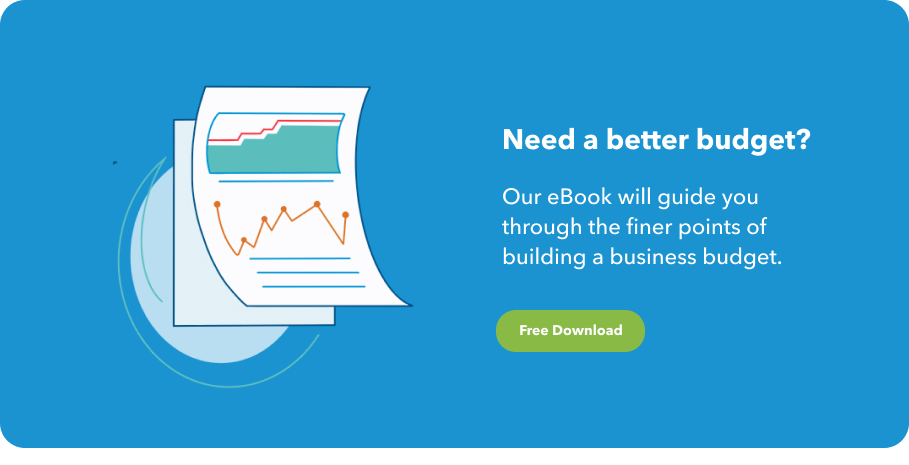In just a few short weeks, 2020 will come to an end. Few of us will be sad to leave this year behind. Between the COVID pandemic, environmental disasters, and large-scale social and economic unrest, people and businesses have weathered extreme challenges over the past 12 months.
Don’t breathe a sigh of relief just yet. Unfortunately, many of the difficulties that defined 2020 will continue into 2021.
The good news is that it’s possible to get ahead of it all this time around. With some smart financial planning, you can minimize uncertainty and maximize opportunities to grow your organization. But you need to act quickly, as many tax and accounting decisions have imminent deadlines.
With that in mind, here are a few questions to ask your accountant as soon as possible:
1. “What’s our tax situation?”
Taxes are never simple, but the various financial, legislative, and practical uncertainties that have cropped up in 2020 could make filing your taxes for this year unusually complicated. Avoid headaches and unnecessary costs by going over the following with your financial partner.
- Estimated tax payments: Many companies are required to make estimated tax payments throughout the year. Due to COVID, some organizations have scaled back on or neglected these payments. Some companies have expected not to make a profit this year, while others have used the money to boost cash flow and stay afloat. Talk to your account to determine whether your organization has underpaid estimated taxes. There’s still time to get into the IRS safe harbor and dodge penalties on anything you might owe if you make a payment now.
- Taxable income: Now is a good time to start thinking about how to minimize your taxable income next year. If you pay employee bonuses by December 31st, for instance, you can claim those on your 2020 taxes. State tax payments are also deductible, as long as you pay them before the end of December.
- Section 179: Be sure to ask your accountant about Section 179 deductions, which allow you to accelerate depreciation on your taxable assets. This is another way to potentially pull in savings before the end of the year.
- NOLs: New net operating loss rules could provide you with more ways to hold onto your cash. For context, if your company’s tax-deductible that tax-deductible revenue—i.e. you have negative income in a tax year—you can claim an NOL deduction. Traditionally, businesses have been able to carry forward NOLs to reduce tax liability on future years’ profits. Here’s where things get complicated: the Coronavirus Aid, Relief, and Economic Security Act (CARES Act) changed the rules to allow companies to carry net operating losses backward as well. This means that you can not only lower your taxes in 2021 with an NOL from 2020, but refile your taxes from 2019 and 2018 and carry back any NOLs up to five years in the past.
- PPP loan considerations: If you took out a Paycheck Protection Program (PPP) loan, be aware of how it may impact your taxes, keeping in mind that certain elements of the law are in dispute. As of this writing, businesses aren’t allowed to deduct any expenses paid with the loans from their taxes. (If you generated $500,000 in income in 2020 and received a $100,000 PPP loan, for example, you can only deduct from $400,000.) Congress is currently debating this issue. Also in question is whether to increase the threshold for simplified loan forgiveness—which allows PPP borrowers to have loans fully forgiven even if they reduced the number of full-time employees or employee salary/wages—from $50,000 to $150,000. Both of these issues could bear on the timing of your taxes—and depending on your situation, it may be wiser to wait and file an extension until Congress provides clear answers. For more PPP loan guidance, check out inDinero’s free guide.
- Business closures: If you’re currently in the process of closing your business, make sure to finalize everything by December 31st. If you don’t, you’ll need to file taxes for any days you remain open in the new year. The costs of maintaining and filing records aren’t enormous, but they add up—and if you’re about to launch a new business, you could use all the money you can get.
2. “What do our budget and cash flow look like for 2021?”
Just as blood flow sustains bodies, cash flow sustains businesses. Given the rocky nature of the current economy, it’s more important than ever to have a good working budget and cash flow model—especially if you operate a small and growing company. To keep your business running in 2021 and beyond, discuss the following with your accountant.
- Your budget: If you haven’t set a budget for 2021, you’re not alone. Roughly 61% of small businesses don’t create budgets. So, why make one? Because not having a budget is like driving without directions—you’re going to end up somewhere, but it might not be where you want to be. A budget is how you set intentions and a framework for your business’s future. It’s a tool for planning and controlling your finances, as well as an early indicator of any problems or setbacks down the road. Your budget allows you to make decisions informed by financial realities rather than mere feelings of optimism or fear. It also helps you understand the impact of your decisions, so you can plan even better next time.
- Cash flow: If your budget is your roadmap, cash is the fuel in your tank. We all learned a hard lesson in 2020: no matter how hopeful we feel or how well we plan, things don’t always go the way we want them to go. With any luck, 2021 will be easier, but it won’t improve immediately on January 1st. Make sure you have a safety net—enough cash to weather more COVID spikes, lockdowns, wildfires, hurricanes, and other potential business disruptions.
3. “Are we taking advantage of every opportunity to save money?”
Every crisis brings opportunities, and the COVID pandemic is no exception. From savings on business supplies and services to historically low interest rates, there are plenty of ways you can reduce expenses and earn more money next year. Here are just a couple.
- Insurance, software, rent, and other expenses: Now is a great time to reassess and renegotiate your expenses. If you’ve lost money or had to let some employees go, for example, you may be able to lower your insurance costs. The same is true for software licenses, which are typically priced by number of uses or business revenue. The cratered commercial real estate market could provide savings opportunities as well. If you’ve remained in an office space or are sure your team will be going back to the office, consider negotiating your lease with the property manager.
- Interest rates: Looking for money to fund your next business, project, or expansion? Now’s the time to borrow. Interest rates are still at multi-decade lows. Don’t take on debt if you don’t need it, but be aware that interest rates will in all likelihood only go up from here.
4. “Is our remote work setup optimized?”
Many companies have been forced to embrace remote work over the past several months, and millions of people will continue working from home for the foreseeable future. These changes have significant financial consequences. If you lead a virtual or semi-virtual workforce, keep an eye out for issues such as the ones below.
- Work-from-home compensation policies: For as many savings as they offer, work-from-home setups can also carry unexpected costs and legal risks for employers. Consider the logistics: How much are you budgeting for at-home office supplies such as pens, paper, and printer ink? Should employees expense all their purchases, or do they need to be given a certain allowance each month? Does anyone need to move to a different city, or a bigger apartment—and if so, who pays for it? Be careful with what costs you cover. Anything you buy for your employees counts as taxable compensation, which could come back to bite you—and them—during tax time. You can’t simply cut a check to cover an employee’s rent, for example, without it being reflected on your and the employee’s taxes. Talk to your accountant about your compensation policies to minimize your and your employees’ liability.
- Cybersecurity: Remote work exposes organizations to increased cybersecurity risks, as many workers are no longer protected by internal networks and IT oversight. According to a recent report from the FBI, approximately 4,000 cyberattacks happen every day. That’s a 400% increase from last year. And of all cyberattacks, about 43% target small businesses. Make sure your company’s remote infrastructure is as secure as possible, and that your employees are trained and up-to-date on cybersecurity best practices. Keep in mind that hackers tend to use social engineering tactics, such as impersonating CEOs in fraudulent emails, rather than brute force methods to gain access to confidential information. Your accounting partner can help you protect your organization’s sensitive financial information remotely.
- Employee connectivity and engagement: At this point, we generally know how to keep business going remotely, but the true impact of working from home on productivity, morale, and culture isn’t totally clear. Take a step back and consider some of the intangible benefits your team may have lost—face-to-face conversations, impromptu collaboration, uncomplicated socializing, and so forth. Is there anything you can do to encourage people to stay connected and engaged at work? Are there any digital tools, policies, or habits that can substitute for the watercooler? Your accountant can help you land on low-cost or free morale-building strategies.
The accounting and tax experts at inDinero can ensure your company is well-prepared and primed for growth—whatever 2021 brings. Take advantage of our unique combination of financial software and services to eliminate errors, streamline operations, and align your business with your strategic goals for next year. Talk to us.
Quick Note: This article is provided for informational purposes only, and is not legal, financial, accounting, or tax advice. You should consult appropriate professionals for advice on your specific situation. inDinero assumes no liability for actions taken in reliance upon the information contained herein.






